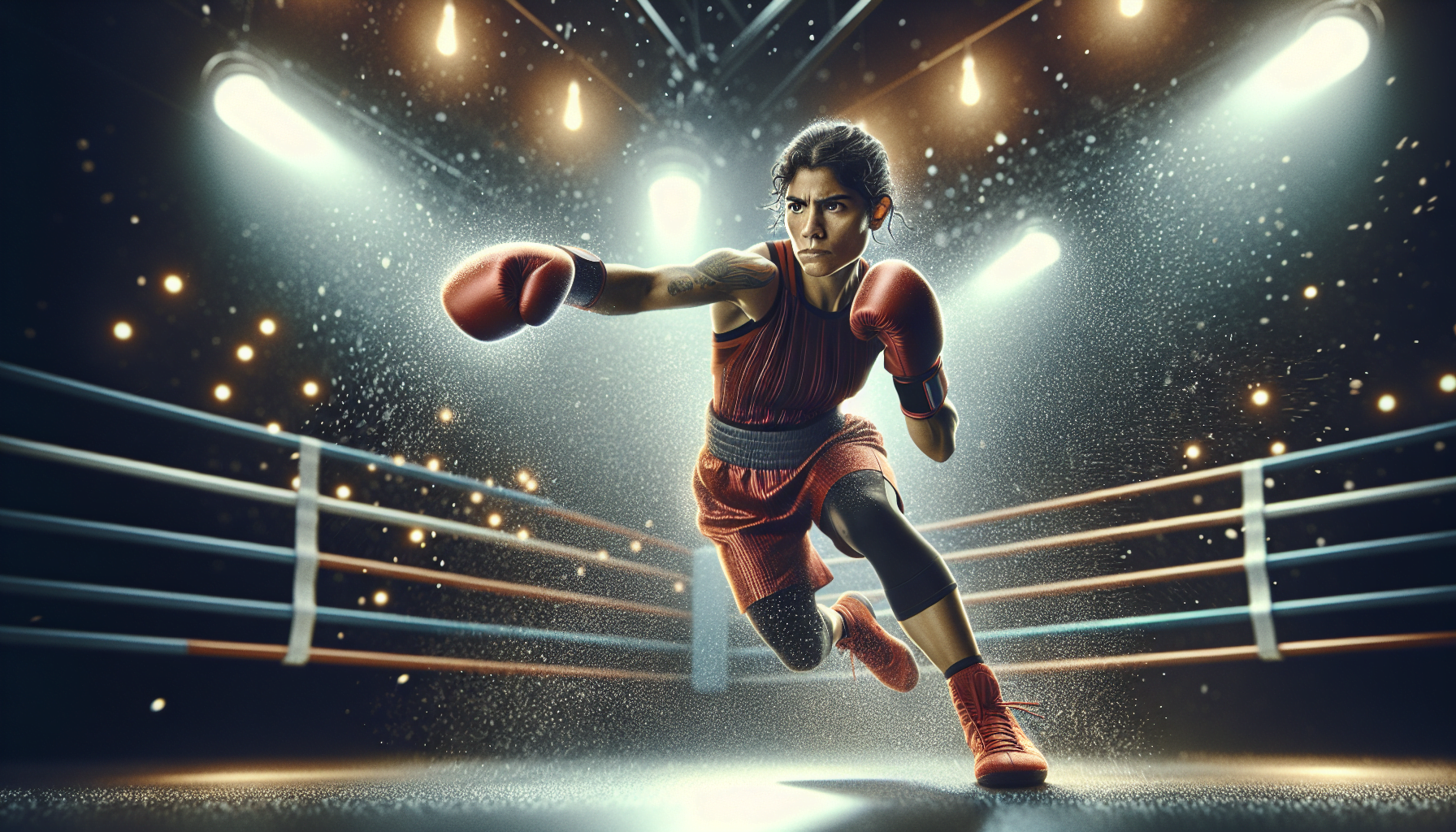Yes, boxing can boost your testosterone levels. Imagine stepping into the ring, gloves on, heart racing—this could be your key to unlocking a hormonal edge. The sweet science of boxing is more than just a dance of dodges and strikes; it’s a symphony of physiological boosts.
Caught in the frustration of plateauing workouts? Boxing might just be the uppercut your routine needs. It’s not just about the physical gains; it’s about the hormonal harmony that comes with every hook and jab.
I’ve felt the rush, the post-sparring surge that courses through your veins. It’s this personal journey through the ropes that’s shown me the transformative power of boxing on not just muscle, but moxie. Let’s dive into how this age-old sport can be your ally in the quest for peak testosterone levels.

The Impact of Boxing on Testosterone Levels

Packing a Punch: Testosterone Surge in the Ring
You’ve probably heard the buzz around boxing and testosterone. It’s not just hype. A 2001 study threw a spotlight on this, showing a clear uptick in testosterone following a good boxing workout. Imagine your body responding to the jabs, hooks, and uppercuts. With each punch, you’re not just building muscle; you’re potentially ramping up your hormone levels.
HIIT the Mark: Boxing’s Intensity Fuels Hormonal Fire
Boxing isn’t just about throwing punches; it’s a full-blown high-intensity interval training (HIIT) session. This type of training is known for pushing your limits and, in turn, spiking your testosterone. It’s the rapid bursts of explosive movements followed by brief recovery periods that do the trick. Your body adapts, and one way it does so is by increasing testosterone production.
Resistance is Not Futile: Building Strength and Testosterone
Resistance training is a cornerstone of boxing. Think about the resistance your muscles face with each punch against a heavy bag. This resistance is a catalyst for muscle growth and, importantly, for testosterone production. It’s a two-for-one deal: as you’re sculpting your physique, you’re also giving your testosterone levels a potential boost.
A One-Two Combo: Boxing Benefits Across Demographics
You might wonder if boxing’s testosterone-boosting effects are for you. They are. Whether you’re a woman looking to empower your workout or an older man aiming to reclaim some neededity, boxing has something to offer. It’s about the intensity and the resistance, both of which can contribute to increased testosterone, regardless of age or gender.
The Science in the Sweat: Understanding Your Body’s Response
When you’re in the ring or pounding the bag, your body is in a state of stress. This is a good thing. It’s this stress that signals your body to up its game, hormonally speaking. Testosterone levels rise as a response, preparing you for the next round. It’s a biological feedback loop, with boxing at the center, driving your hormonal balance to new heights.
Factors Affecting Testosterone Levels in Boxing

Age and Hormonal Balance: The Inevitable Shift
As you lace up your gloves, That age is more than just a number in the ring. It’s a key player in your hormonal orchestra. Testosterone levels naturally decline as you age. This isn’t just hearsay; it’s a biological fact. Picture a graph in your mind, with your age on one axis and your testosterone levels on the other. As the years increase, the hormone levels tend to dip. It’s a gradual slope, not a cliff, but it’s there. And it’s something every boxer, from the amateur to the seasoned pro, must contend with.
The Heavyweight of Obesity on Hormones
Now, let’s talk about weight-but not the kind you lift. Obesity. It’s like an unwelcome opponent that can throw your testosterone levels off balance. Excess fat, especially around the belly, can lead to a hormonal imbalance. It’s a double-edged sword; not only does it affect your agility in the ring, but it also messes with your testosterone. Think of it as a sneaky jab that you didn’t see coming. It’s there, it’s impactful, and it’s something to be mindful of as you train.
Cutting Weight: A Delicate Dance with Testosterone
Weight loss is a common theme in boxing. But it’s not just about making weight for a fight. It’s about understanding how shedding pounds can affect your hormones. Rapid weight loss can be a shock to the system, causing a temporary dip in testosterone. It’s like taking a body shot; it can wind you for a moment. But with proper nutrition and a gradual approach, you can bounce back, ready for the next round.
Resistance Training: Building More Than Muscle
Resistance training and weightlifting aren’t just about bulking up. They’re your secret weapon for boosting testosterone. When you push against resistance, you’re not only sculpting your physique, you’re also sending a signal to your body to ramp up hormone production. It’s like revving the engine of a muscle car; you feel the power surge through you. And that power translates to more effective punches and better endurance in the ring.
Boxing vs. Cycling: The Testosterone Title Fight
Boxing is a full-body workout. It demands more from you than just pedaling a bike. When you’re throwing punches, ducking, and weaving, you’re engaging multiple muscle groups. This full-body engagement is key to increasing testosterone. Cycling, while great for stamina, doesn’t quite pack the same hormonal punch. It’s the difference between a jab and an uppercut-one gets the job done, but the other has the knockout power.
DHEA Supplements: The Contender or Pretender?
DHEA supplements are often touted as a way to boost testosterone. But in the ring of science, the jury is still out. Some studies suggest a benefit, while others don’t see a significant difference. It’s like a boxer with a flashy record but untested skills. Before you consider DHEA, think about the natural ways to boost your hormone levels. Train hard, eat right, and let your body do what it’s designed to do.






